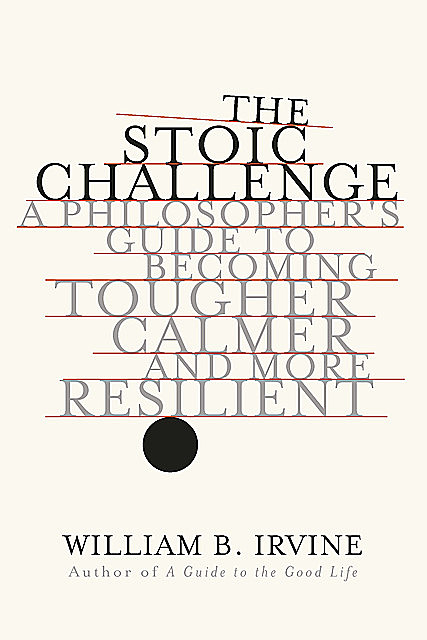
Read in our apps:
iOS
·Android
The Stoic Challenge: A Philosopher's Guide to Becoming Tougher, Calmer, and More Resilient
- About
- Quotes15
- Readers11
- On the bookshelves
- Nikolai C.has quoted4 years ago“When mind and body have been corrupted by pleasure, nothing seems bearable—not because the things which you suffer are hard, but because you are soft
- Nikolai C.has quoted4 years agoif we make a point of exposing ourselves to things that make us either physically or emotionally uncomfortable, we can train ourselves to be comfortable with them and thereby expand our comfort zone
- Nikolai C.has quoted4 years agoNature requires from us some sorrow”—but adds that “more than this is the result of vanity.”5 He has in mind those individuals whose primary motivation for public displays of grief is to show the world how sensitive and caring they are
- Nikolai C.has quoted4 years agoUsually the harm done us by our emotions—if we allow them to be triggered—is the biggest cost associated with a setback.
- Nikolai C.has quoted4 years agoConclusion: if you can bring yourself to laugh at the things that make most people cry, you have a powerful weapon to use against life’s adversities
- Nikolai C.has quoted4 years agoHe also knew that when people judge others, they do so in accordance with their own values, not in accordance with the values of the people they are judging
- Nikolai C.has quoted4 years agoPoliticians have an unfortunate habit, though, of thinking of these people and referring to them not as targets of injustice but as its victims. It is a label that many people are quick to accept. Being a victim, after all, relieves you of responsibility for many of the aspects of your life that have gone wrong. It also entitles you to special treatment: victims need time and space in which to recover and maybe even some kind of monetary compensation
- Nikolai C.has quoted4 years agoSO WHAT SHOULD WE DO when we feel that someone has wronged us? Our first objective, says Seneca, should be to avoid getting angry. That way we will have no anger to deal with and therefore no anger either to express or to suppress.
- Nikolai C.has quoted4 years agoOthers have the opposite motivation for telling setback stories: they seek not our admiration but our pity. They might, in particular, want us to reassure them that it isn’t their fault that they experienced the setback they did—an unfair world is instead to blame
- Nikolai C.has quoted4 years agoOthers have the opposite motivation for telling setback stories: they seek not our admiration but our pity.
fb2epub
Drag & drop your files
(not more than 5 at once)

